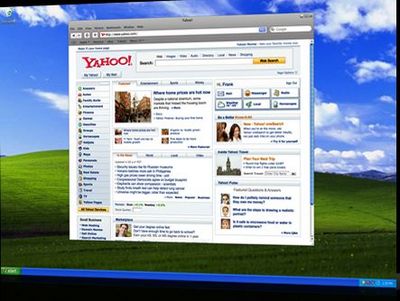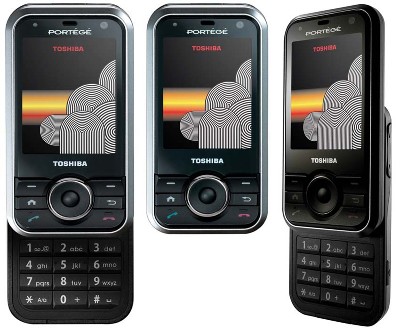Tag: REVIEW
Liveblog of the Apple iPhone launch: Part Two
I've been liveblogging the iPhone launch all night, but much as I love everyone on the West Coast of America, I can't prop my eyelids up with matchsticks any more to cover the launch there too. There's a few posts…
First iPhone reviews: "Flawed but great"

If you’re a big-name hack in New York, you’ve probably been strolling around with an iPhone for a couple of weeks now. Walt Mossberg and Kathering Boehret of the Wall Street Journal, and David Pogue of the New York Times are examples, and they’ve just published their reviews of Apple’s first mobile phone.
Shiny Video Review: BlackBerry 8800, Curve and Pearl comparison
There’s a whole slew of BlackBerrys out there now from you to choose from, all offering consumers a different BlackBerry experience. So, we’re here for you, and we want to help. Check out the video for what the 8800, the Pearl and the Curve can offer you…
Review: Safari web-browser for Windows

As part of WWDC last night, Steve Jobs unveiled possibly the most important piece of news of the night to consumers – Safari, Apple’s very own web-browser, was to become available on Windows. Quite why any self-respecting Windows user would want to taint their hard drive with El Jobso’s machinery, and quite why Apple are interested in placing their software on Windows in the first place, no one knows. But then, the same thing was said when they announced iTunes would be available on Windows, and there’s no way in a-black-turtleneck-and-jeans heaven the iPod would have seen anywhere near the amount of success had this not been implemented.
So, we know Safari already owns 5% of the market share in web browsers – but will this new availability of the browser for Windows-users increase the popularity? Read on below for my review – and yes, I’ve tried not to wear my Bill Gates-adoration on my sleeve *too* much here, to give you the most unbias review I possibly can…
Shiny Video Review: HTC P4350 Smartphone
It may not be a touch-screen like the recent offering from HTC, but this P4350 from the smartphone company still manages to impress….
Shiny Video Review: Toshiba Portege G500 Smartphone
We’ve been cranking out the smartphone reviews of late, because really, what is a mobile phone these days without office features and push-email? Alex has taken a few minutes to run through a video demonstration of the Toshiba G500, a 3G, HSDPA, feature-packing smartphone (in a relatively compact case).
Toshiba Portege G500…
Shiny Review: Toshiba Portege G500 Smartphone

Hot on the heels of the laptop / tablet PC we reviews last month, we’ve taken a look at a smartphone from the same Portege range.
Replete with Windows Mobile 5, fingerprint security, WiFi and Bluetooth, there’s a lot of potential packed into this smartphone. It’s not the slimmest or most compact of sliding phones, but there’s a lot to recommend it nonetheless.
Shiny Video Review: TVonics DVR-250 Digital Freeview Playback Receiver and Recorder
Susi and Alex demonstrate the user and eco friendliness of this “Freeview Playback” certified device with a 250GB hard drive.
TVonics DVR-250
Review: Ask3D – Ask's revamped search engine
 I’m choosing to forget Ask’s rather bizarre ‘propaganda’ advertising of their new search “Ask 3D” search engine as I take a look at how effective it is as a tool, and whether it’s going to pose a threat to Google.
I’m choosing to forget Ask’s rather bizarre ‘propaganda’ advertising of their new search “Ask 3D” search engine as I take a look at how effective it is as a tool, and whether it’s going to pose a threat to Google.
There’s more to Ask3D than the slightly shiny, icon-based eye candy that greets you when you arrive at their front page.
Both Google and Ask are keen to offer a more holistic approach to search results. A search for “Steve Jobs” in Google brings up the usual listing of results, but interspersed with news and video. It’s easy to find these items by scrolling through the results, but they’re not particularly distinct at first glance.
Ask, on the other hand, clearly separates regular web pages, listed in the middle column, from multimedia content and the latest news, displayed in sections in the right-hand column. It’s an elegant layout, marred only slightly by the “Sponsored Results” boxes which don’t integrate as well as their Google counterparts, and can sometimes take up to half of the screen before search results are displayed.
Shiny Video Review: Ashley and Kat discuss the HTC Touch smartphone
If you thought we had just about expended the subject of HTC’s Touch smartphone, think again. Just this morning Ashley…

















